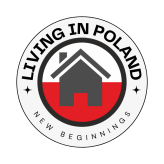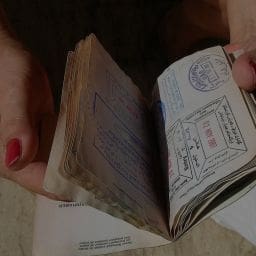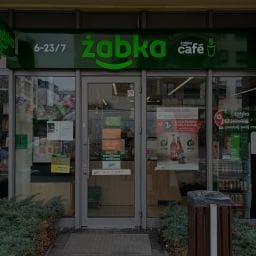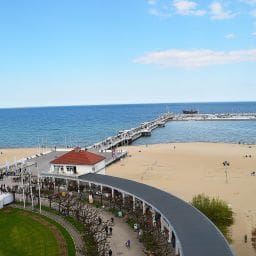🌍 Buying or Renting Property in Poland: A Guide for Newcomers
🔍 The Polish Housing Market
Over the past few years, Poland’s housing market has seen significant price increases. Cities like Warsaw, Kraków, Wrocław and Gdańsk have all experienced a boom in property demand. There are a few key reasons:
- 📈 High inflation pushing up construction costs
- 🏘️ Rising demand from both locals and foreign investors
- ⛔ Limited availability of land and new developments
- 🧳 Increased migration into cities for work and education
For buyers, this means property prices are noticeably higher than even just a few years ago. For renters, monthly costs have also risen – especially in popular urban areas. But compared to the UK, Poland is still often more affordable overall, depending on the location.
💸 Renting in Poland
If you’re not ready to buy just yet, renting is the most common first step for newcomers. It gives you flexibility and time to get to know the city before committing long-term.
Where to look:
It’s common to rent through private landlords or via agencies. If using an agency, be aware that some charge the equivalent of one month’s rent as a finder’s fee.
Typical rental prices (2025 estimate):
- 🏙️ Warsaw: 3,000–5,000 PLN/month for a 1–2 bed flat
- 🎓 Kraków: 2,500–4,500 PLN/month
- 🏞️ Smaller towns: 1,800–3,000 PLN/month
Most rentals are unfurnished or semi-furnished, so be prepared to do a bit of IKEA shopping.
📜 Rental Contracts & Tips
- ✍️ Always insist on a written contract (umowa najmu).
- 🔍 Read the small print – some contracts are for a fixed term and hard to break early.
- 💰 Landlords may ask for a deposit (kaucja), usually one or two months’ rent.
- ⚡ Utilities (electricity, gas, internet, water) are often extra – clarify before signing.
💡 Tip: Contracts in Polish are legally binding. If you don’t speak the language, have someone translate the document before you sign anything.
🏡 Buying Property in Poland
Looking to settle down for good? Buying a home might be on your radar. The good news is that UK citizens can still buy property in Poland, even post-Brexit, though there are a few things to consider.
Can foreigners buy property?
✅ Yes – in most cases, EU and non-EU citizens can buy apartments and houses in Poland without needing special permission. However, buying land (especially agricultural or forest land) can be more complicated and may require a permit from the Ministry of the Interior.
📍 Where to Buy?
The location will impact both the price and the lifestyle. Here’s a quick snapshot:
- 🏙️ Warsaw: The capital, modern and fast-paced, but the most expensive.
- 🏰 Kraków: Culturally rich and great for history lovers.
- 🎉 Wrocław: Young, vibrant and full of students.
- 🌊 Gdańsk: Coastal charm and a growing expat community.
- 🌳 Smaller towns or countryside: Peaceful and cheaper, but with fewer English speakers.
💰 Average Prices (2025)
- 📌 Warsaw: ~15,000 PLN/m²
- 📌 Kraków: ~13,000 PLN/m²
- 📌 Wrocław: ~12,500 PLN/m²
- 📌 Gdańsk: ~13,500 PLN/m²
- 📌 Smaller towns: ~7,000–10,000 PLN/m²
Prices are rising, so if you’re planning to stay long-term, buying could be a smart investment.
📝 Legal Process & Tips
- 🆔 You’ll need a PESEL number (Polish ID number) to purchase property.
- 🧑⚖️ Hire a notary (notariusz) – they handle the legal side and are mandatory for property sales.
- 📖 Check the land and mortgage register (księga wieczysta) to make sure the seller legally owns the property and it’s free of debts or claims.
- 📑 Use a Polish-speaking lawyer if you’re unsure about the paperwork.
💡 Tip: Financing from Polish banks is possible but more difficult for foreigners. You’ll often need proof of income in Poland and a permanent residence permit.
🚫 Regulations or Challenges for Expats
- 📆 You don’t need a visa to enter Poland for short stays (up to 90 days in 180), but if you want to stay longer, you’ll need to register your stay and apply for a residency permit.
- 🏠 Without a registered address, you won’t be able to get a PESEL number, or register with local authorities.
- 🗣️ Language can be a barrier – especially when dealing with contracts and bureaucracy.
🏙️ Popular Neighbourhoods in Poland
📍 Warsaw
- Śródmieście – Central, vibrant, pricey
- Mokotów – Residential, green, family-friendly
- Wola – Developing fast, modern flats
- Praga-Północ – Gritty but gentrifying
📍 Kraków
- Old Town – Beautiful but touristy
- Kazimierz – Historic, artistic, lively
- Podgórze – Quieter, nice river walks
📍 Wrocław
- Rynek – Iconic, busy, expensive
- Krzyki – Green and residential
- Śródmieście – Central, mixed housing
📍 Gdańsk
- Old Town – Scenic but pricey
- Wrzeszcz – Trendy and student-friendly
- Oliwa – Calm, near the sea
Also read: Buying Property in Poland
📦 Moving Tips
- 🧳 Bring essentials: documents, adapters, warm clothes
- 🪑 Buy cheap furniture locally—check IKEA or second-hand sites
- 🏦 Set up a Polish bank account for local transfers
- 🆔 Apply for a PESEL to make admin easier (not essential, but helpful)
- 🗣️ Learn basic Polish phrases—it really helps with landlords and neighbours
🚨 Avoiding Scams
- ⚠️ Be wary of too-good-to-be-true listings (e.g., low prices in top locations)
- 🚫 Never pay deposits before seeing the flat
- 📄 Use contracts—in both Polish and English if possible
- 🆔 Confirm the landlord’s identity
- 🌐 Use well-known platforms or agencies
📄 Signing a Lease
What to expect in a standard lease:
- 📆 Duration: usually 12 months with notice period (30 days typical)
- 💰 Deposit: 1–2 months’ rent
- 💡 Rent may or may not include bills (ask first!)
- 🛋️ Check inventory list and condition of items if furnished
- ✍️ Always get a signed copy of the contract
📑 Paperwork & Admin
- 🆔 PESEL Number – Similar to a national insurance number. You’ll need it for most things, including healthcare and contracts.
- 🏠 Registration – If staying more than 30 days, you must register your address (zameldowanie) at your local office.
- 🏥 Healthcare – Poland has a national health system (NFZ), but private health insurance is also popular and affordable.
🗣️ Language Tips
- 🇬🇧 You can work as a UK citizen without a visa until your stay exceeds 90 days. For longer stays, consider applying for a temporary residence permit.
- 💼 Freelancers and business owners should explore the “auto-entrepreneur” route—Poland is quite startup-friendly!
💳 Banking
- 🏦 Open a Polish bank account once you arrive (Santander, mBank, and ING are expat-friendly).
- 💳 Use Revolut or Wise for international transfers—much cheaper than traditional banks.
🚍 Getting Around
- 🚇 Public transport is excellent. Download Jakdojade for journey planning and ticketing.
- 🚲 Bikes and scooters are also popular in most major cities—Lime and Bolt are widely available.
🎯 Final Thoughts
Finding a flat or apartment in Poland as a British expat is a journey—sometimes straightforward, sometimes a little messy—but definitely doable. Whether you’re drawn by work, love, or just a better pace of life, Poland offers a high standard of living, great value compared to the UK, and a growing international community.
Take your time, do your research, and don’t rush into buying. Renting for a while lets you settle into the rhythm of your new city. And once you’ve found your place—figuratively and literally—you’ll be enjoying pierogi, strong coffee, and some very decent Polish beer in no time.
















